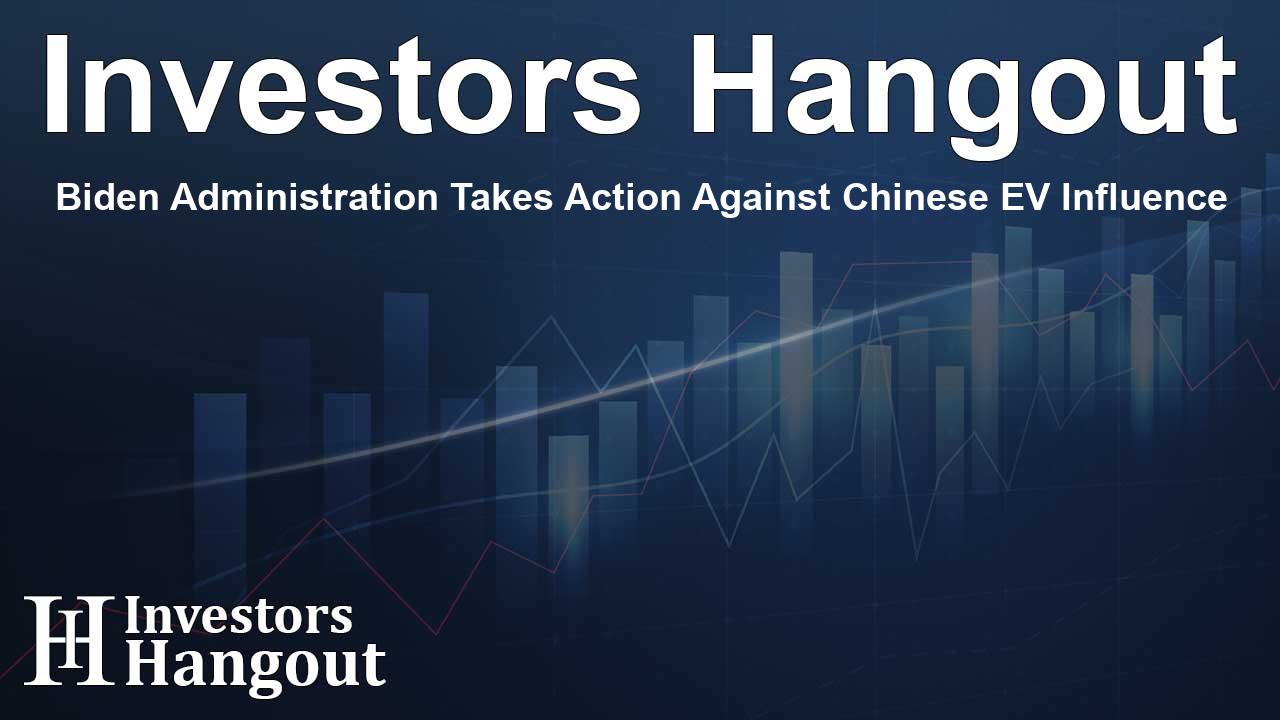Biden Administration Takes Action Against Chinese EV Influence

Strategies to Safeguard the U.S. Automotive Sector
The U.S. automotive industry faces challenges as global competition intensifies, particularly from Chinese manufacturers. Lael Brainard, the director of the National Economic Council, recently discussed efforts by the Biden administration to protect American carmakers during her visit to Detroit. With a growing commitment to supporting electric vehicle (EV) production domestically, the administration aims to ensure that U.S. consumers have access to American-made options in the evolving automotive landscape.
Investing in Domestic Battery Production
One of the integral aspects of this strategy is enhancing the domestic production of lithium-powered batteries. The Inflation Reduction Act is a cornerstone initiative that will not only stimulate private-sector investments but also promote the sourcing of materials within American borders. This means that American auto manufacturers could become less reliant on imports from China, which currently stands as one of the primary suppliers of lithium, alongside Australia and Chile.
Competing for Consumer Choices
Brainard emphasizes that American consumers should have the freedom to choose vehicles that best suit their needs, whether they prefer gas-powered cars, hybrids, or electric vehicles. The administration is eager to foster an environment where American-made EVs are a viable option, countering the influence of foreign manufacturers. "If someone wants to drive an EV, we want to make sure it was made in America and not in China," she affirmed, signaling a commitment to protecting national interests in the automotive sector.
Tariffs as a Tool Against Market Flooding
Furthermore, the Biden administration recently rolled out a significant 100% tariff on Chinese-imported electric vehicles, a policy Brainard actively supports. This move aligns with similar announcements from other nations also looking to impose tariffs on Chinese automotive imports. The concern is that without these measures, Chinese companies could potentially flood the U.S. market with low-priced EVs, disrupting fair competition.
Potential Risks of Chinese Market Control
Brainard articulated two major concerns related to the influence of Chinese automakers on American roads—fair competition and national security. The administration is proactively investing in the domestic supply chain as well as imposing tariffs to challenge the competitive edge of Chinese manufacturers. The stakes are high, particularly as companies like BYD offer budget-friendly EVs that could severely undercut American manufacturers.
Addressing National Security Issues
National security also remains a vital aspect of the conversation. Brainard raised alarms about the potential vulnerabilities associated with the rise of connected cars that collect extensive amounts of data from drivers. Recently, President Joe Biden signed a law aimed at bolstering protections for American consumers, specifically restricting sensitive data transfers to foreign adversaries, including Chinese companies. In her words, "It basically says that we will not allow cars driving on U.S. roads if they are using Chinese software and hardware systems." This legislative action highlights the administration's commitment to safeguarding the data privacy of American drivers.
Moving Forward
The Biden administration's approach signifies a comprehensive strategy aimed at ensuring fairness in the automotive market while prioritizing national security. As discussions around tariffs and investments in U.S. automotive manufacturing continue, there remains a significant push towards a more resilient and competitive domestic EV industry.
Frequently Asked Questions
What initiatives are in place to support American automakers?
The Biden administration is focusing on tariffs, domestic investments, and the Inflation Reduction Act to support U.S. automakers.
How is the U.S. protecting consumers from foreign influence?
New laws are in place to restrict sensitive data transfer to foreign countries, particularly China, ensuring consumer protection.
What are the potential risks of relying on Chinese manufacturers?
China's influence poses risks of undermining fair competition and raises national security concerns regarding connected vehicles.
How does the tariff on Chinese EVs work?
The 100% tariff on Chinese-imported electric vehicles aims to level the playing field for American manufacturers and prevent market flooding.
Why is domestic battery production crucial for the U.S.?
Increasing domestic battery production will reduce reliance on imports from China and strengthen the U.S. automotive supply chain.
About Investors Hangout
Investors Hangout is a leading online stock forum for financial discussion and learning, offering a wide range of free tools and resources. It draws in traders of all levels, who exchange market knowledge, investigate trading tactics, and keep an eye on industry developments in real time. Featuring financial articles, stock message boards, quotes, charts, company profiles, and live news updates. Through cooperative learning and a wealth of informational resources, it helps users from novices creating their first portfolios to experts honing their techniques. Join Investors Hangout today: https://investorshangout.com/
Disclaimer: The content of this article is solely for general informational purposes only; it does not represent legal, financial, or investment advice. Investors Hangout does not offer financial advice; the author is not a licensed financial advisor. Consult a qualified advisor before making any financial or investment decisions based on this article. The author's interpretation of publicly available data shapes the opinions presented here; as a result, they should not be taken as advice to purchase, sell, or hold any securities mentioned or any other investments. The author does not guarantee the accuracy, completeness, or timeliness of any material, providing it "as is." Information and market conditions may change; past performance is not indicative of future outcomes. If any of the material offered here is inaccurate, please contact us for corrections.